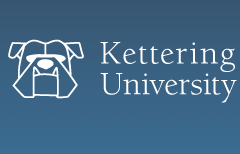Document Type
Conference Proceeding
Publication Date
2019
Publication Title
American Society for Engineering Education
Conference Name
2019 ASEE Annual Conference
Abstract
Faculty advisors and counselors play an important role in establishing and sustaining a successful Society of Women Engineers (SWE) student section. Currently, most SWE collegiate sections have both faculty advisors and counselors. A faculty advisor, who is required for student organizations in most universities, serves as the liaison between the SWE section and the university and is responsible for knowing the university’s policies. A faculty advisor helps the student section access university resources and ensures the section is meeting all university requirements. A counselor is required by SWE for a collegiate section to remain in “good standing” and serves as the liaison between the SWE section and other SWE professional members and the industry [1]. The relationship between collegiate sections and their faculty advisors and counselors is different at every university. This paper examines the role of faculty advisors and counselors in SWE collegiate sections. The objective of this study is to determine how faculty advisors and counselors act as liaisons between the SWE sections and their respective universities and local industries to better serve female students. A survey about how SWE faculty advisors and counselors for collegiate sections view their role in the organization was conducted. A total of 76 faculty advisors and counselors responded to the survey. The data were analyzed and our findings show faculty advisors and counselors play an important role in providing continuity to the section, participation in and understanding of the larger organization, and in mentoring students on both general leadership and SWE leadership. The data also show that there is a correlation between the size of the section and the level of involvement of the faculty advisor/counselors. Larger sections have more involvement from both faculty advisors and counselors. Some respondents, who identified themselves as advisors for multiple student organizations, feel that their advising roles are similar. Therefore, the findings represented in this study can be generalized to other student organizations as well.
Rights Statement
ⓒ American Society for Engineering Education, 2019
Recommended Citation
Peters, Diane and Abdallah, Alexa Rihana, "How Faculty Advisers and Counselors View their Role in the SWE Organization" (2019). Mechanical Engineering Presentations And Conference Materials. 151.
https://digitalcommons.kettering.edu/mech_eng_conference/151

